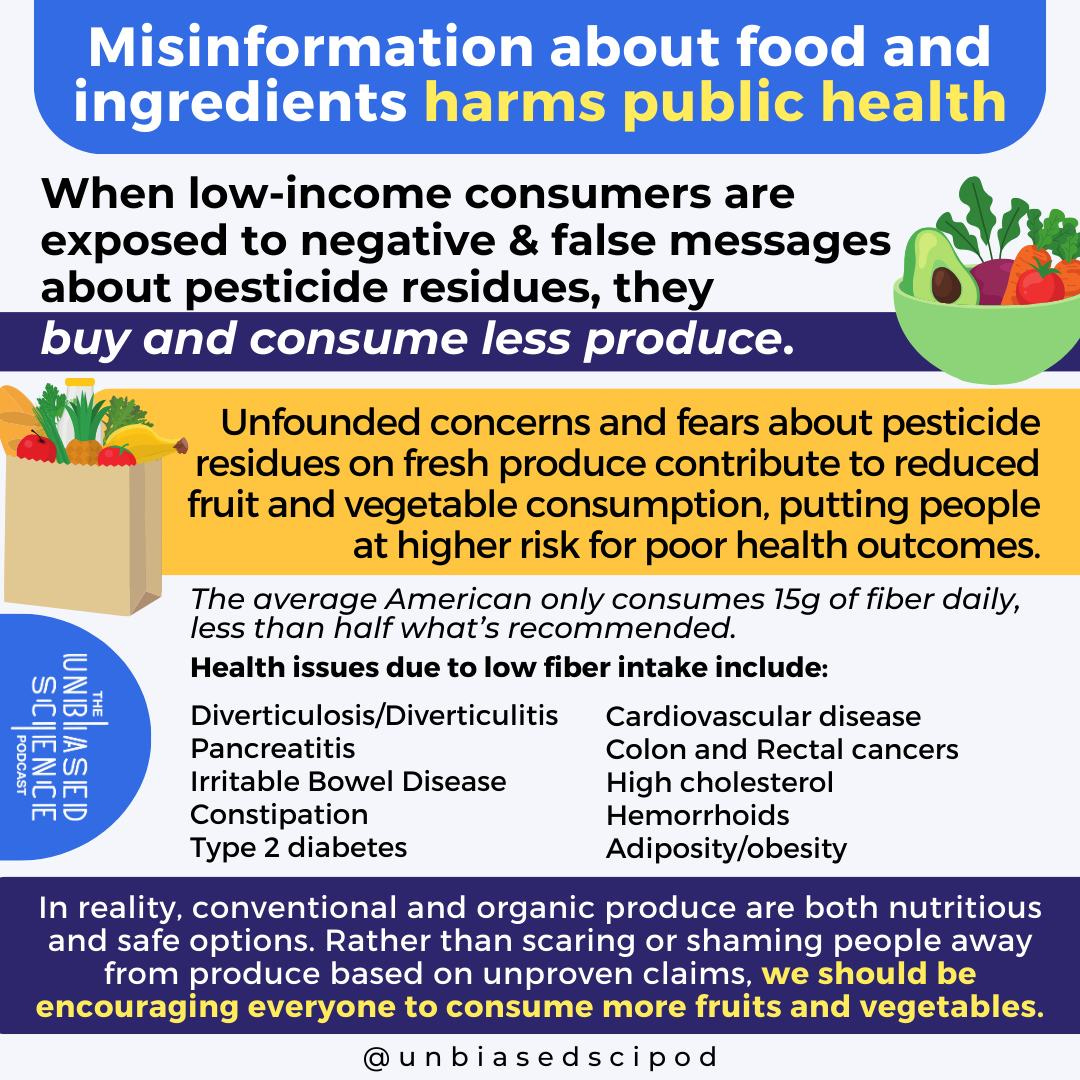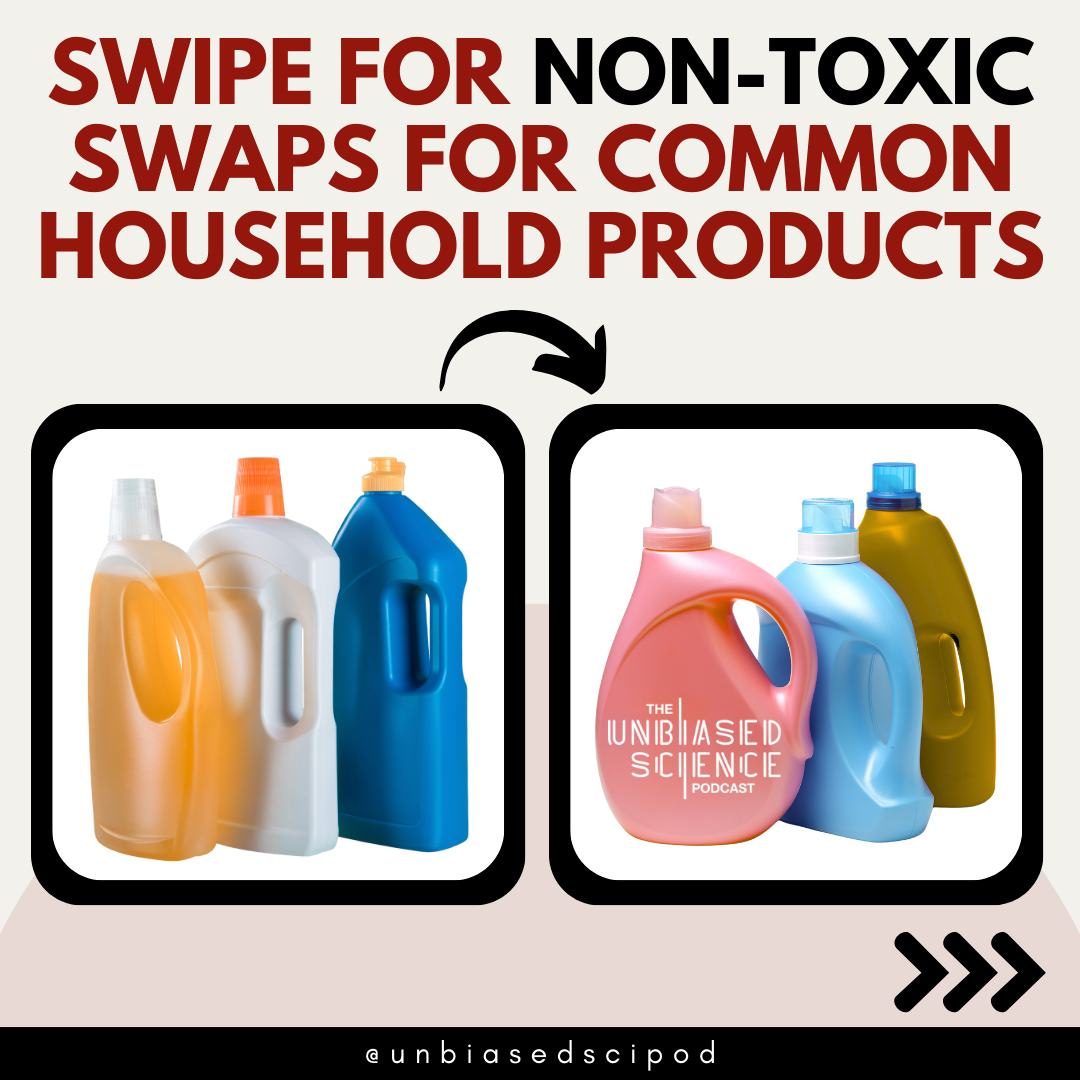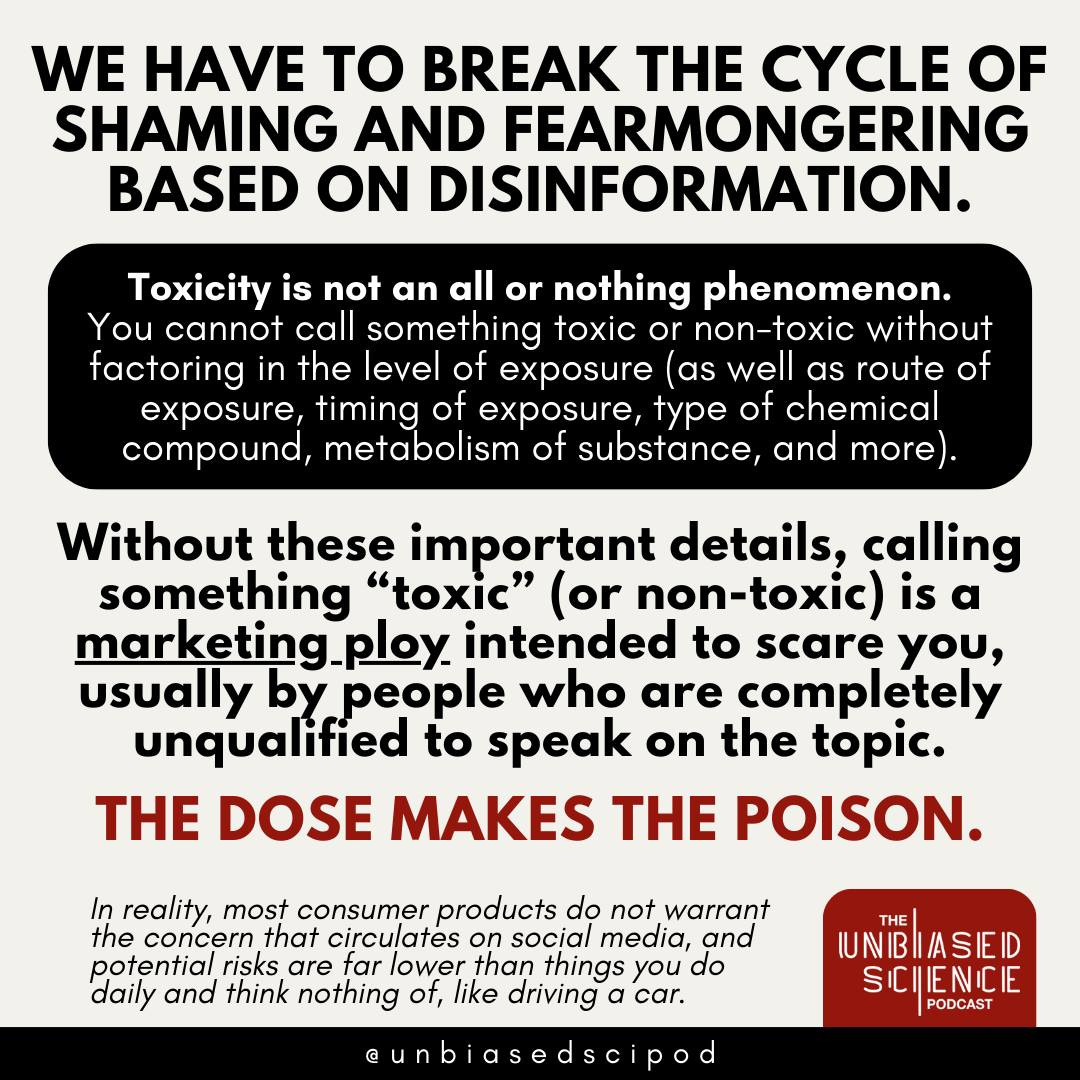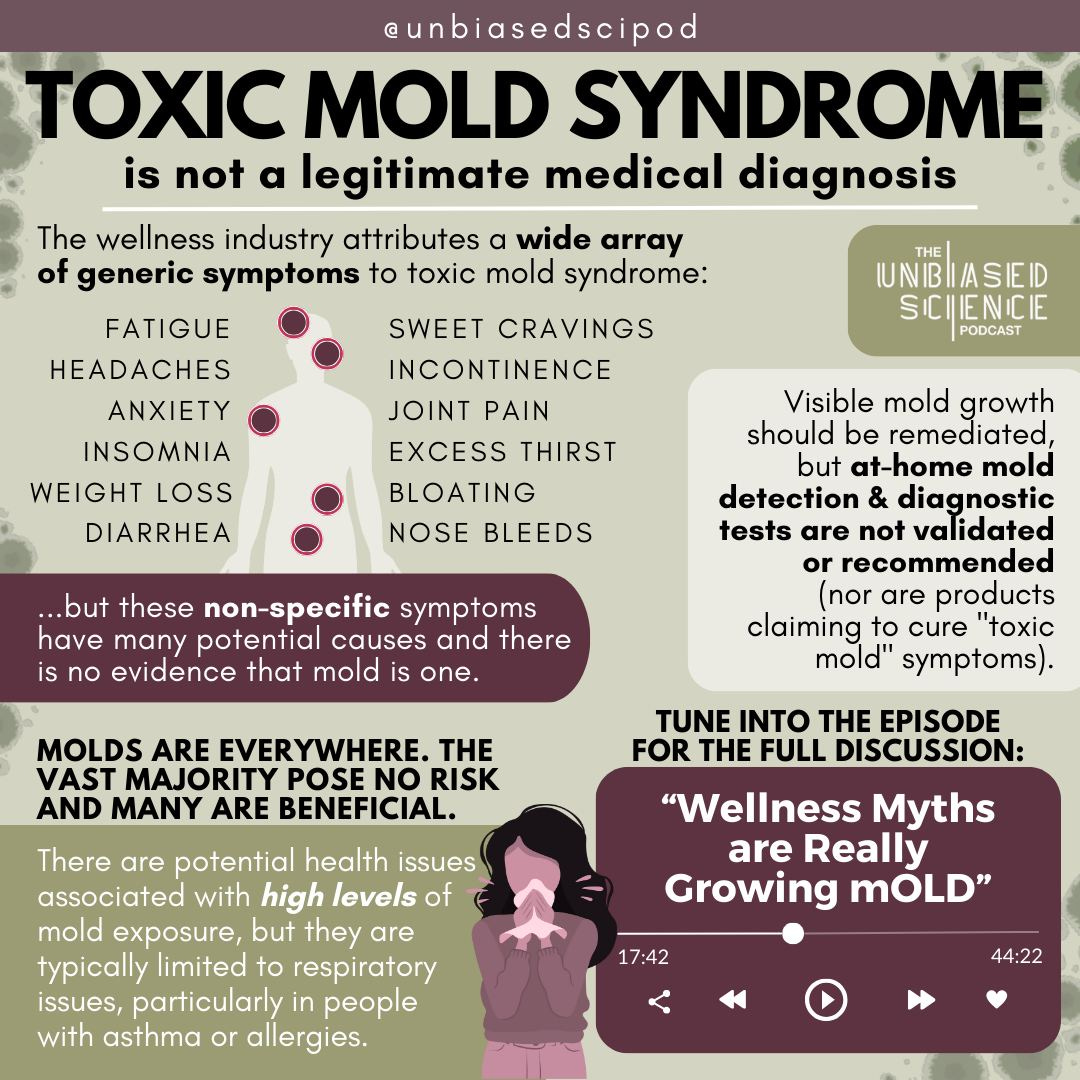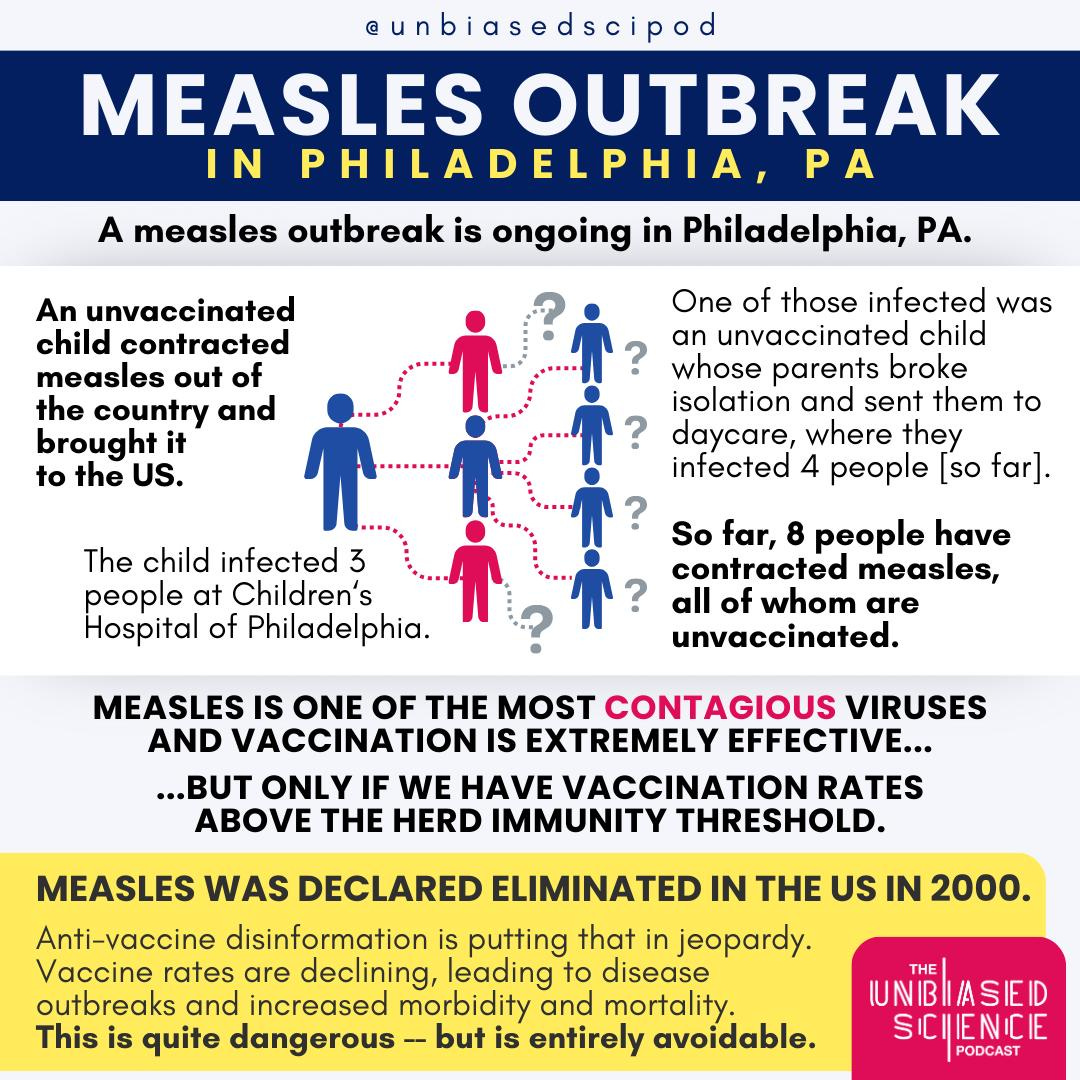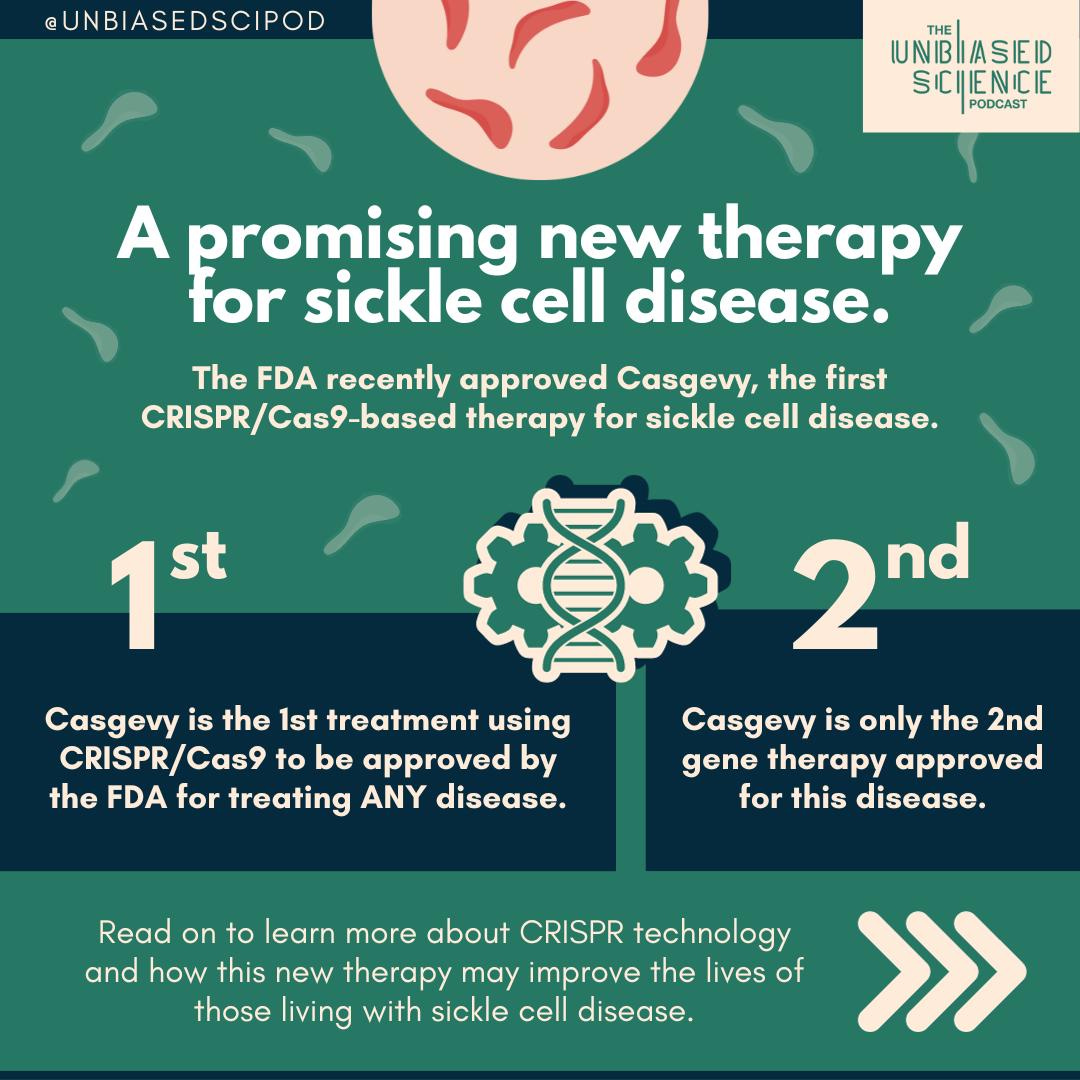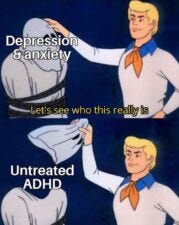The Dose: Measles, Toxic Mold, ADHD, CRISPR, and more
Lots of happenings in the science and 'wellness' spaces!
Welcome to The Dose! We’re delivering bi-weekly health and science updates right to your inbox, and we’re including some humor, art, and fun along the way.
If you missed our last issue, we kicked off with a summary of the recent American Academy of Pediatrics published a policy statement about GMOs, genetic engineering, and foods, which, unfortunately, was fraught with fear-based misinformation.
If you missed the discussion with Dr. Nicole Keller (a pediatrician, farmer, and member of AAP) and Dr. Kevin Folta (a molecular biologist specializing in plant genetics), you MUST watch it here:
Separately, journalist
authored a piece in The Messenger on the same topic, and our own Dr. Andrea Love was quoted in it. You can read the piece here.Why do we care so much about this type of information that is promoted as science-based? Aside from the fact that the data - decades of it, in fact - don’t support these statements, this misinformation causes real harm to people. Higher costs, fear of foods that are safe and nutritious, belief that what they are buying is pesticide free when it isn’t, health anxiety, and more.
Medical organizations should be encouraging people to eat more produce, not scare them away from it. The data demonstrate that when people are exposed to negative messages about pesticides, they consume fewer fruits and vegetables. Americans already don’t meet their daily fiber goals - and this will inevitably worsen health outcomes.
Unfortunately, this fear-based messaging understandably, can be frightening to people who think they are harming themselves or their families. This tactic is used all across the “wellness” space. From household products to healthy foods - it can feel overwhelming. Our goal always is to provide practical and evidence-based information on REAL versus PERCEIVED risks. And the truth is, you don’t need to worry nearly as much about things as social media, media outlets, and influencers would have you believe.
Pseudoscience medical diagnoses are all the rage in the wellness space. It is a clever tactic: create a medical condition, convince people they have it, then sell them tests, treatments, and more to cure it. “Toxic mold syndrome” is one such diagnosis. Nearly hundreds of symptoms are attributed to this purported condition.
We discuss what’s real and what’s not on this episode:
Unfortunately, with anti-science rhetoric comes rejection of science-based health interventions. This means declining vaccine rates, and not just flu, COVID-19, and RSV (please get those if you have not, respiratory illness season is surging and vaccination rates are low). Rates for routine childhood illnesses are also dropping, and that has led to measles outbreaks across the US.
A current outbreak in the Philadelphia metro area began with an unvaccinated child importing measles following international travel. As of 1/17/23, there are 9 total cases in the area.
In the DC Metro area, the Virginia Department of Health is contact tracing a measles case that came through Dulles Airport on January 3rd.
Measles is an extremely contagious virus with a long incubation period, so the potential to infect people is high, especially when vaccination rates decline. We need 95% of the population to be vaccinated to stop the spread. Misinformation about the importance of measles vaccination leads parents to not get their kids vaccinated, but we have discussed those pervasive myths previously:
Some good news: the VERY first gene therapy using CRISPR/Cas9 technology has been approved by the FDA! Casgevy is now approved for both treatment of sickle cell disease and beta-thalassemia, and is only the second gene therapy option for sickle cell disease. Genetic technologies have immense potential to improve health, so watch this space.
And our newest podcast episode on ADHD aired yesterday - a topic that is near and dear to us - especially when it comes to adults going undiagnosed for their entire lives! That’s right, Andrea was just diagnosed with ADHD last spring at the age of 35. We talk about the science of ADHD - what’s known and what’s not - gaps in clinical diagnostic criteria, treatment options and more with Dr. Craig Chepke, a Board-certified psychiatrist who specializes in ADHD. He is currently at the American Professional Society of ADHD and Related Disorders (APSARD) conference, the organization that is currently working on the first ever diagnostic criteria for adult ADHD.
We will leave you with this very apt ADHD meme:
That’s it for this issue! If you’re not currently a subscriber, we’d love to have you! If you are, thanks for being here! Feel free to share this with your friends, family, and coworkers!




